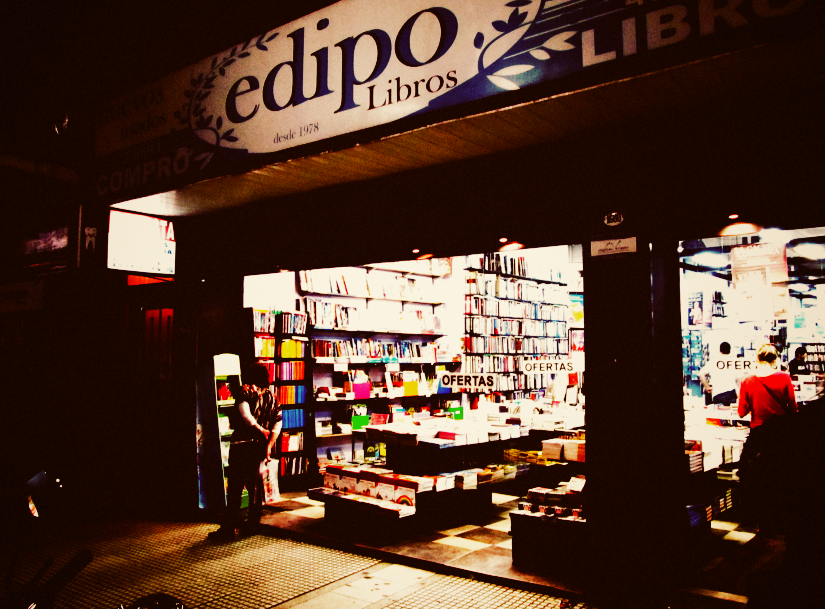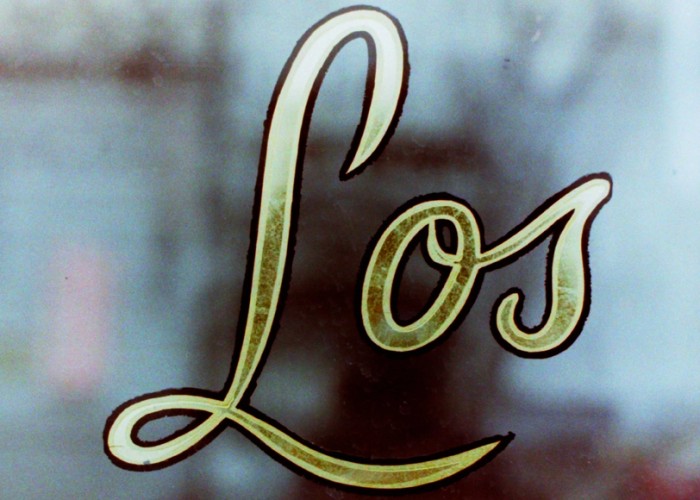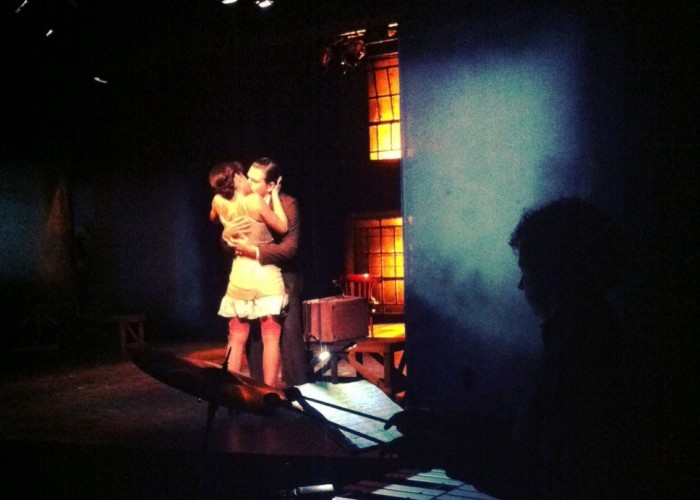Edipo [buenos aires]
Milton Läufer
translated by Heather Cleary
It’s true: Edipo is an ugly bookstore. And yet, though this may seem like a contradiction, its most notable trait is its invisibility. Though it was founded more than thirty years ago on one of the busiest stretches of Corrientes Avenue and has survived the rise and fall of some giants of its guild nearby, surprisingly few people know about it. The reason for this, I think, is that Edipo disappears among the dozens of its less important peers that surround it. The ones that, instead of shelving their books, heap them carelessly on rickety tables; the best-seller is everywhere in these stores, as are the self-help book and a few classics in reprint editions of questionable legality. These shops are passed over by the eye of the book fetishist, who is pained to see the object of his affection turned into fast food. The way Edipo camouflages itself to look like one of them is, precisely, a survival strategy, and—like any esoteric pleasure—getting to the real experience requires persistence: past a number of unwelcoming tables you end up in a more agreeable section, where you can find the peace of Anagrama, Tusquets, and Alfaguara editions of work by more or less contemporary, more or less respectable, writers. But the real Edipo only begins there. The used books section, on shelves organized in rows at the back of the store, is truly exquisite: there order reigns, the books are in good condition, the prices are fair, and it’s not uncommon to find a first edition. This may be the only used book store that has kept alive the spirit that made this stretch of Corrientes famous (Eco, in his prologue, claims to have found the manuscript of The Name of the Rose here).
Two of its other unique qualities explain my love for this bookstore. The first of these is Oscar, a character who was born skinny, friendly, and with gray hair. Every single time I’ve been there, so has he (the fact that I lived on the same block explains my surprise at this). The years and other employees, each one less experienced than the last, have come and gone. But Oscar has never missed, or aged, a day. He’s one of those booksellers who know the location and number of copies of every volume by heart, as though the constant company of books had turned him into one. The second is its partial observance of an old custom among the bookstores on Corrientes: though it’s not open 24 hours anymore, as it was in the early 90s, Edipo closes at four in the morning. This has come in handy more than once for the 2:00am purchase of gifts on my way to birthday parties. And it doesn’t close for holidays. Not for Christmas, or New Year’s, or Bookseller’s day, or May 1. That steadfastness makes me happy, because of what it implies: that books are of a class of thing that may be needed as urgently as medicine.
* *
Librería Edipo – Avenida Corrientes 1686 – Buenos Aires, Argentina
[ + bar ]
Instructions for Navigating in amongst The Dead, followed by a Requiem
Paola Cortés Rocca on Bruno Dubner’s Las Muertas (The Dead) translated by Jennifer Croft
1. Images are wily: they don’t lay out facts, don’t make any cases. They’re indolent and... Read More »
Edgardo Cozarinsky
Translated by Victoria Lampard and Heather Cleary
From “Ultramarina,” a contemporary opera by Marcelo Lombardero, with music by Pablo Mainetti and a libretto by Edgardo Cozarinsky, based on... Read More »
Profética [puebla]
Rafael Toriz Translated by Julia Ostmann
Chatting Over A Drink Conversation in the Convent
Being, appearing to be, and running a bookstore in Mexico is a high art, not... Read More »
Orellana [valparaíso]
Álvaro Bisama translated by Julia Ostmann
My favorite bookstore is a ghost bookstore. It was called the Orellana and was located in the center of Valparaíso. It closed a... Read More »



![Profética [puebla]](http://www.buenosairesreview.org/wp-content/uploads/dos-599x500.jpg)
![Orellana [valparaíso]](http://www.buenosairesreview.org/wp-content/uploads/la-foto-crop-700x500.jpg)



 sending...
sending...